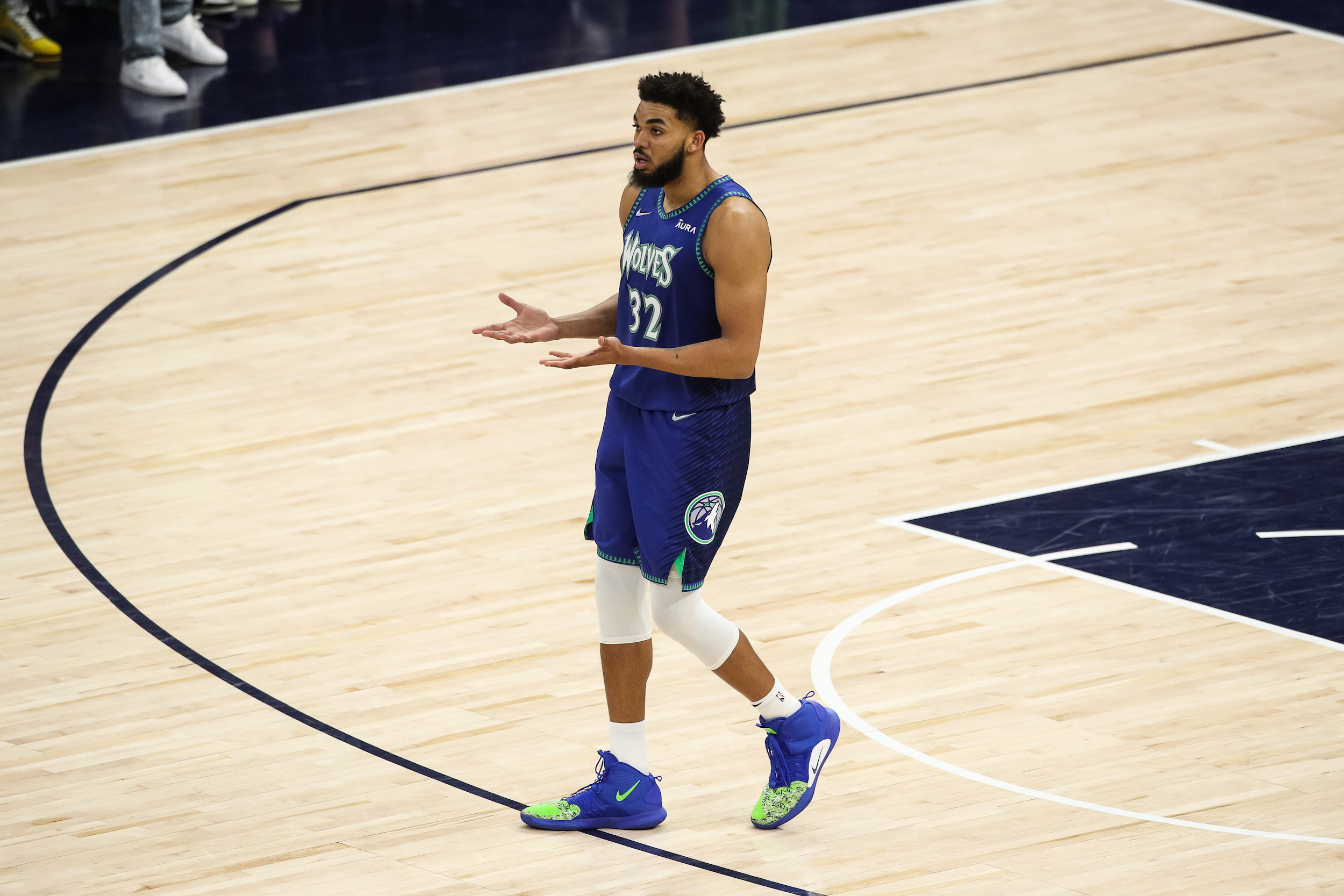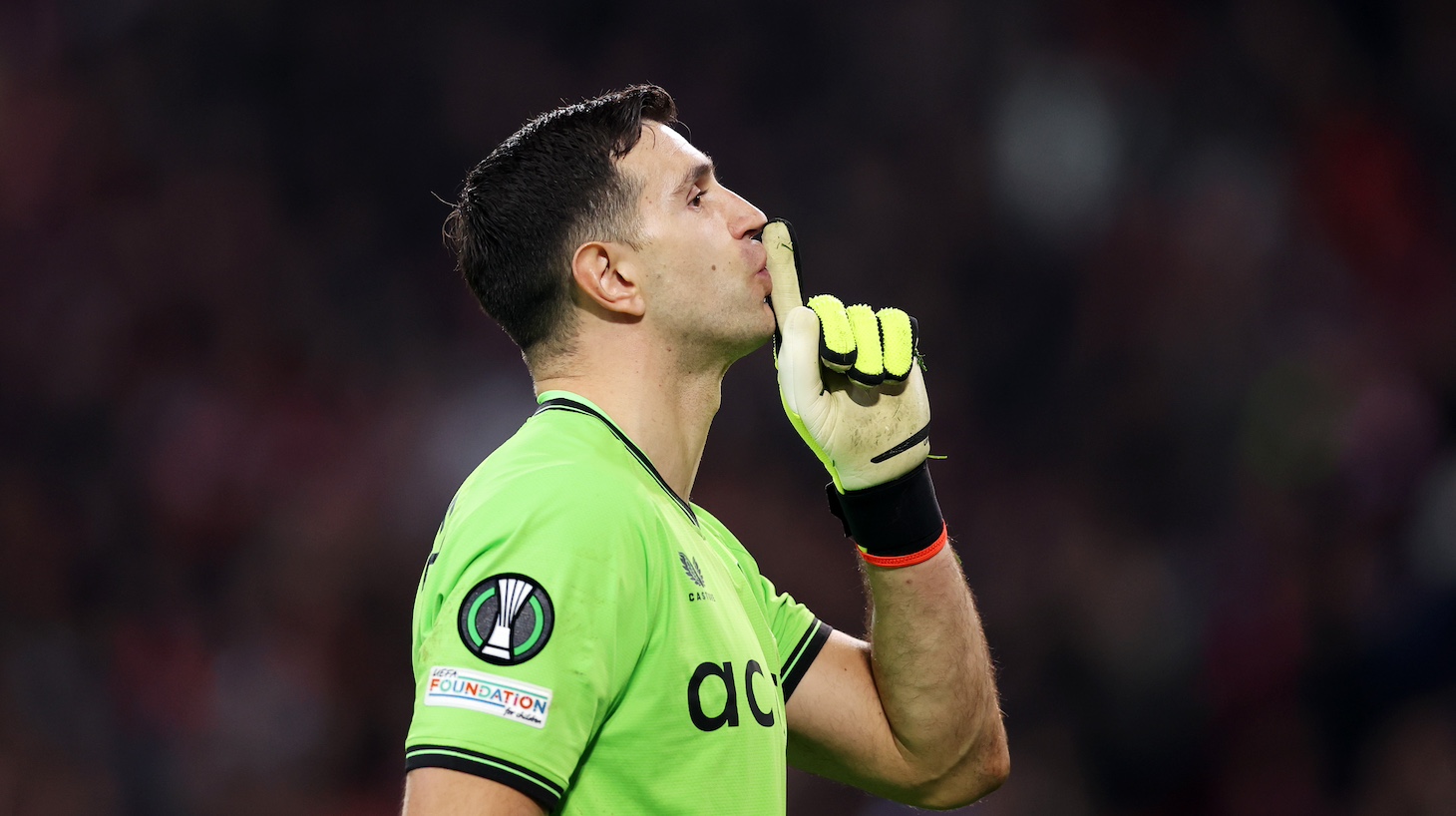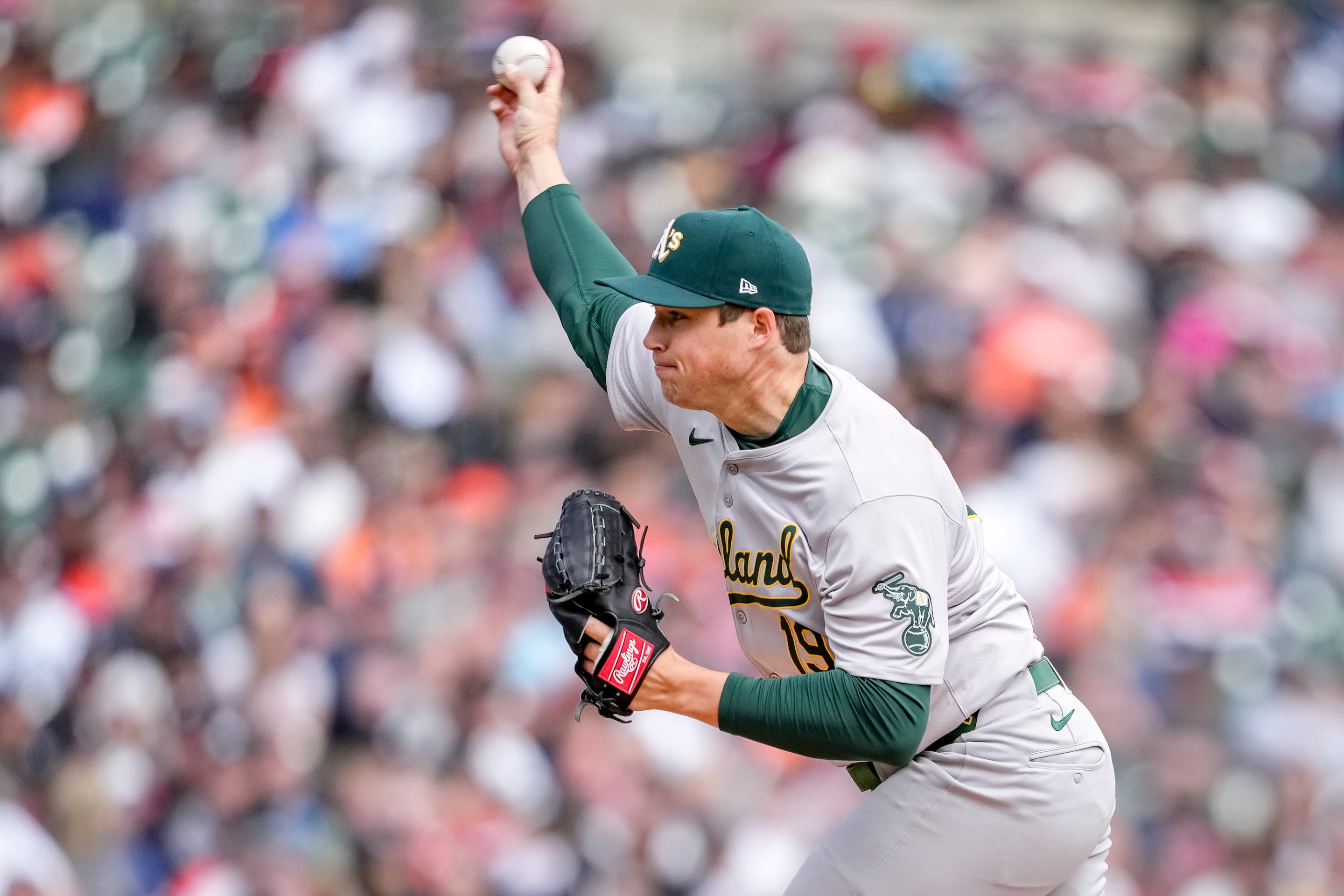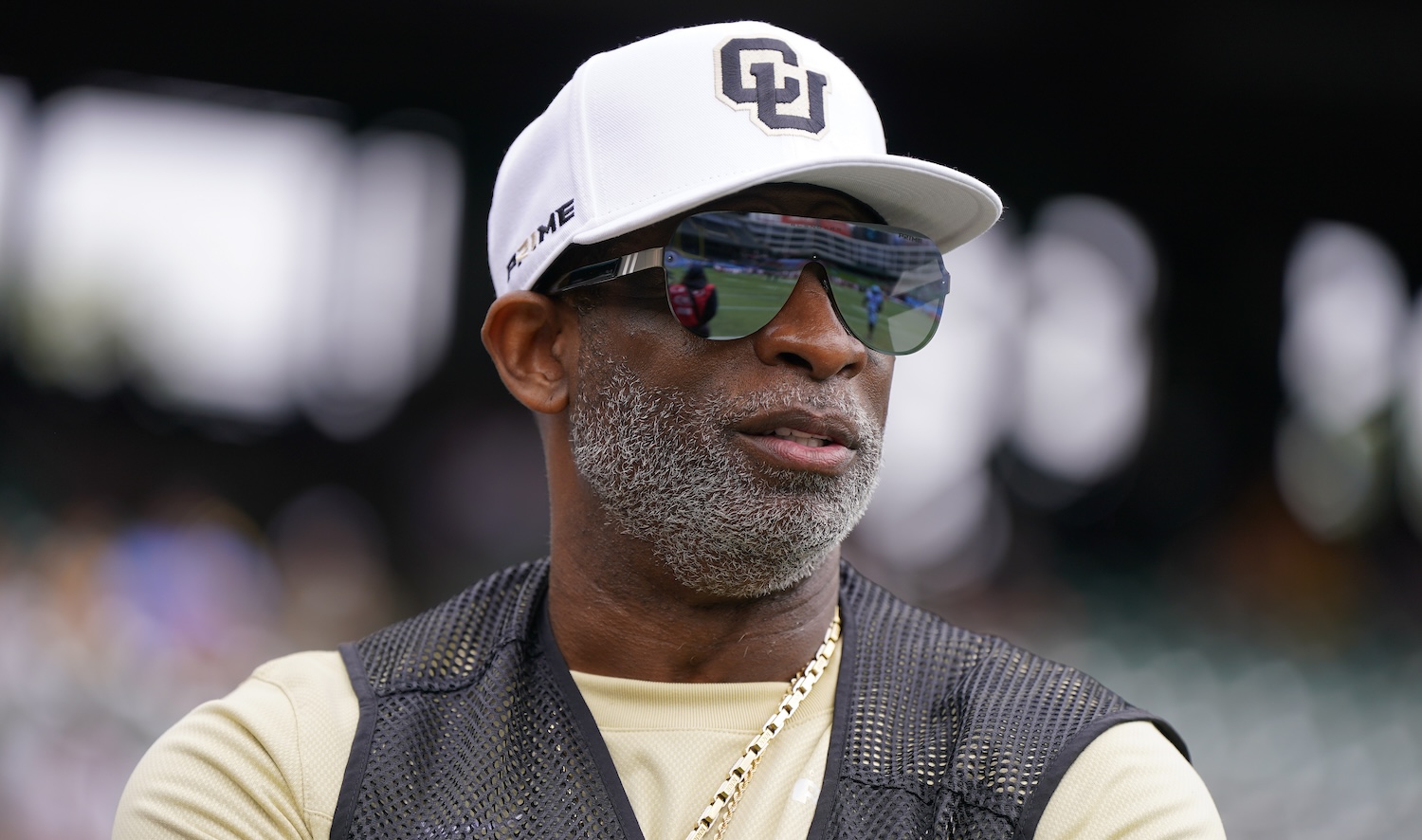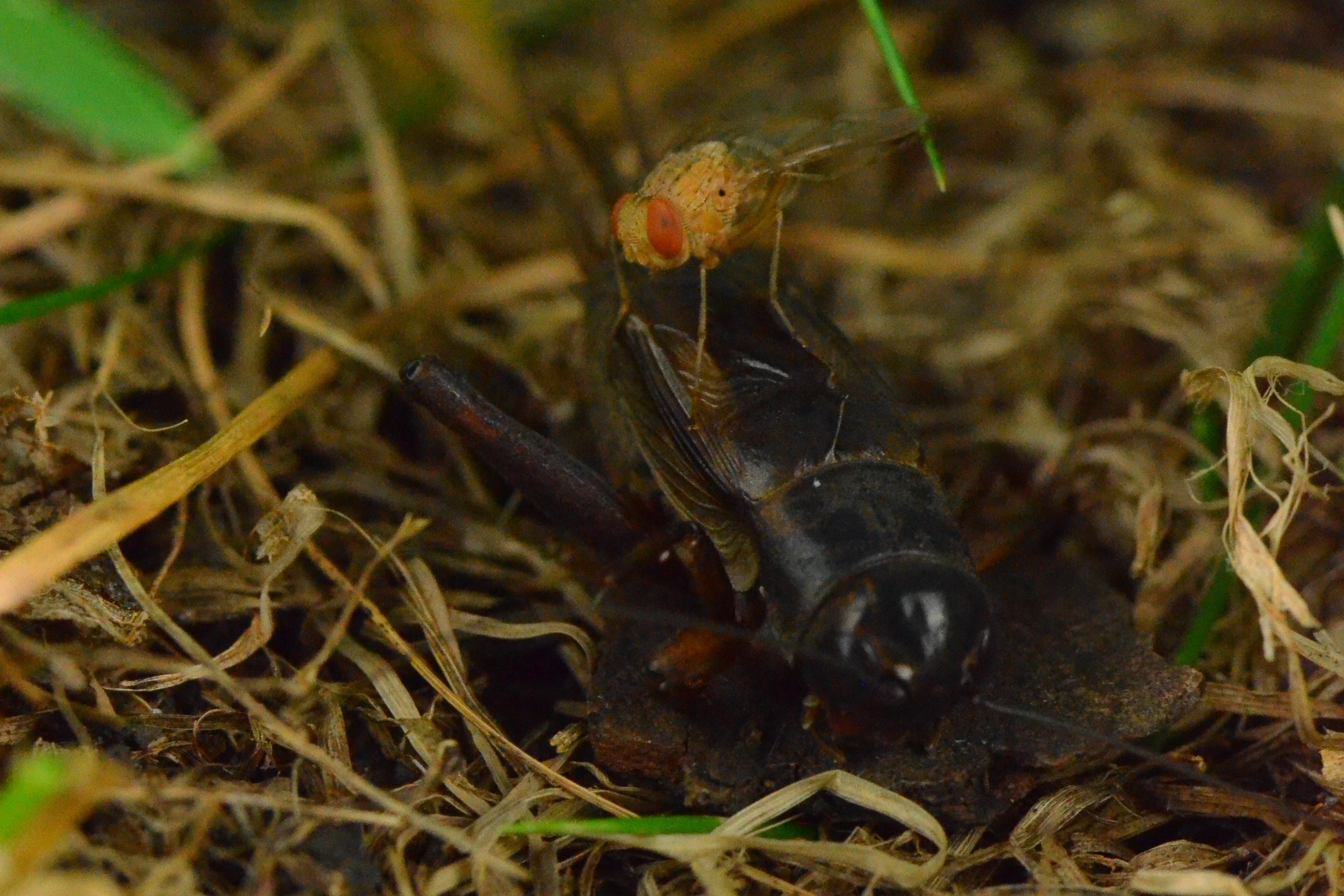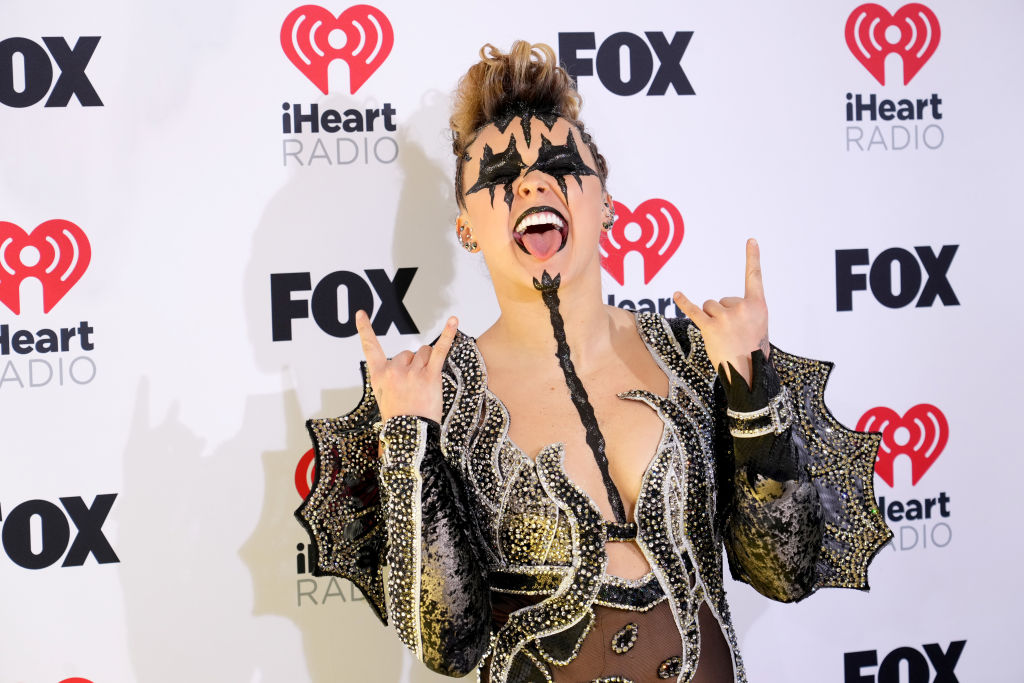Of all the incredible numbers to sift through from the Timberwolves' all-timer of a playoff collapse in their Game 3 loss to the Memphis Grizzlies—a game in which the home team surrendered not one but two 25-plus-point leads, one in each half—the one that finally broke my brain Thursday night can be found helpfully circled on the box score below. It is perhaps the most crazy-making statistic produced in any of the 1,250 NBA games played this season, and I may never fully wrap my head around it.
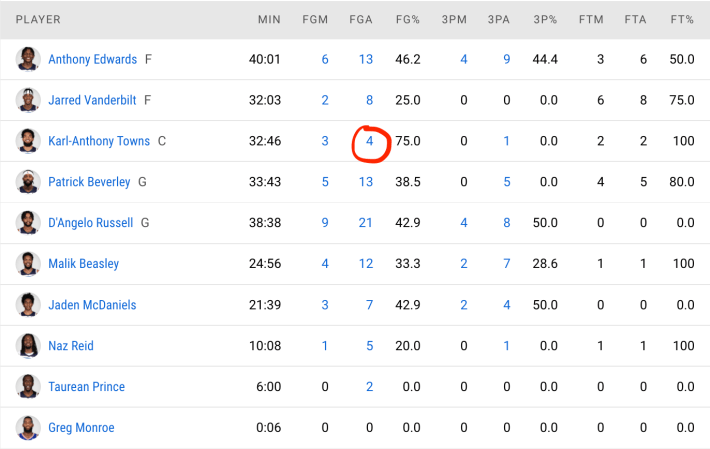
Karl-Anthony Towns, by a wide margin Minnesota's best offensive player and one of the handful of most talented big men in the sport, attempted—attempted—just four shots in 33 minutes of action. Towns had more fouls than shots. Naz Reid attempted more shots than Towns did. Patrick Beverley took (and missed) more three-pointers than Towns took total shots. In a Timberwolves victory—a victory that seemed all but assured with 2:58 left on the clock in the third quarter and the Wolves leading by 25 points—Towns's passivity might've gone down as a product of admirable selflessness. Needless to say, it's somewhat harder to admire in the aftermath of the third largest come-from-ahead loss in NBA playoff history. Towns has now attempted just 11 total shots over Minnesota's last two games, both discouraging losses. How does that happen?
For answers, we will have to look someplace other than Towns himself, who gave a terse "next question" when asked about it during a seething postgamer. Memphis's tactical adjustment heading into Game 3 was to remove center Steven Adams from the starting lineup and replace him with Kyle Anderson, on the theory that the smaller lineups that turbocharged the Grizzlies during a Game 2 blowout win shore up some of the team's defensive vulnerabilities while making challenging demands of Minnesota's matchup-hunting offense. You are free to describe this as a success, though it bears mentioning that in the first and third quarters of Thursday night's Game 3—the quarters, uhh, started by the starting lineups—the Grizzlies were outscored by 27 points.
The Clippers tried something like this in their play-in loss to the Timberwolves back on April 12: Their strategy was to throw extra bodies at Towns, force him to move the ball to his less refined teammates, and bank that those teammates couldn't shoulder the burden. Though Towns was held to 11 points on 11 shots over a very grumpy 24 minutes, the strategy failed to lift the Clippers to victory, as Towns was happy to point out after the game: "It didn’t work. It doesn’t irritate me at all. Went home very happy. Shoutout to the Clippers, too. They’ve done the best job all year of anybody with how they want to get the job done on me. And it forced my hand with passing."
The Grizzlies also threw extra defenders at Towns, but crucially, none of those defenders were as large or slow or earthbound as Ivica Zubac. Going small against Towns presents challenges both ways: He's one of the strongest and most efficient post scorers in the world, on the one hand, but on the other hand, guarding him with a committed wing treats him a little bit more like what he has become at this stage of his career, which is a large man who likes to play like a guard. Towns's best moments Thursday night—indeed the only moments where I can remember him doing anything with the ball at all—came when he would throw a pump fake at a defender 25 feet from the basket, use an escape dribble to get going downhill, and then throw a nifty pass to a cutting teammate. It's just that a few too many of those nifty passes were going to Beverley and Jarred Vanderbilt and Malik Beasley, solid role players who should absolutely never be outshooting Karl-Anthony Towns by ratios of two or three to one.
I'm stuck on Towns's strikingly low shot total because it was Minnesota's offense that completely fell apart in the fourth quarter, when they were outscored 37–12 as part of an unbelievable 50–16 Memphis run over the final 14:57 of game clock. The Timberwolves made three total baskets and shot 15.8 percent from the floor in the fourth quarter, a desperate, surreal stretch of game that saw Towns attempt one single shot in more than eight minutes of run. He'd had a choppy, frustrating game, marked by unfavorable whistles and frustration fouls, but it seemed reasonable to expect that at some point during this meltdown Towns would demand the ball and make an effort to rescue his team from disaster, perhaps for no other reason than so that he would be able to say that he tried. And that moment just never came.
Instead, Brandon Clarke, Tyus Jones, and especially Desmond Bane caught fire for the visitors. Jones drilled a pull-up three-pointer to give Memphis its first lead of the game, 86–85, with 7:09 left on the clock. Two minutes later, Bane knocked down his seventh three-pointer of the night to make it a two-possession game. Clarke, who played an inspired second half, threw in a little jump-hook in the paint with around 2:30 left in regulation to put the Grizzlies up five, then tipped in a Ja Morant miss 30 seconds later to push the lead to seven. Following a sloppy Towns turnover, and with the Wolves looking completely shell-shocked and demoralized, Dillon Brooks sized Towns up in an isolation and threw in a deeply rude step-back three-pointer to stretch the lead to double digits and functionally end the game.
Dillon Brooks makes it a 10 point game with just over a minute remaining 😤#NBAPlayoffs presented by Google Pixel on TNT pic.twitter.com/GKwHPbWsfB
— NBA (@NBA) April 22, 2022
A fun thing about these Timberwolves this postseason has been a kind of goofy, charming obliviousness about exactly who they are and exactly how they got here and exactly how serious their prospects are of advancing very much further. Their games—even their wins, even their big impressive wins—do not showcase the precision and intensity found in most of the other playoff series so far. It's all a little bit ragged and improvised, the kind of loose and swashbuckling play that could end with the best player on the team looking up after the final buzzer and discovering that he has only attempted four shots. Every few years, if we are lucky, there's a young playoff team of this exact sort: A cocky "why not us" outfit that every time they step on the floor demonstrates precisely why it will not be them, but whose effort is no less entertaining for its complete lack of perspective. They might earnestly believe that they are in the mix for a shot at a championship, but the thing that these ultra-young Timberwolves are doing right now, more than anything else, is learning what it is like to compete in a playoff series.
This is not to say that the Timberwolves are dead, even if it's hard to imagine them recovering from Thursday night's disaster. They can do it, and there's even a non-zero chance that they could put this humiliating experience to use and level up and join the hunt for the title. But there were always going to be growing pains and tough lessons for a team counting on Towns and Anthony Edwards and D'Angelo Russell as its big three, players with little or no playoff experience and even less experience competing at this level as a group. The regular season is for seeing what happens when the opposing defense dares you to score without using your best player. You will not find a healthy Joel Embiid, or Kevin Durant, or Devin Booker, or Stephen Curry, or Nikola Jokic allowing themselves to be so thoroughly erased from a playoff game, most especially not when their team so desperately needs someone to lean on. And I would bet good money that after Thursday night's fiasco you will not find Karl-Anthony Towns allowing it to happen again, either.
If you liked this blog, please share it! Your referrals help Defector reach new readers, and those new readers always get a few free blogs before encountering our paywall.
Staff Writer
Stay in touch
Sign up for our free newsletter
